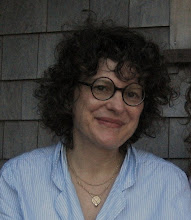
Bob Morris used to write a so-so column in the NYT Styles section called the
Age of Dissonance about modern life. Anyway
Assisted Loving is a story of his 83 year old father who's been recently widowed and is starting to date through the personal ads while his son Bob is also looking for a partner. The father is this maddening annoying character, explosive, selfish and domineering who somehow has this sweet side that is very endearing. Morris Junior is always worried about his father's stained wardrobe, messy car and house and his obnoxious ways and has all the complex feelings you would expect with a parent starting to date. He wants his father to find someone to make him happy too, someone with social connections and a good second home.
One very compelling piece of the story, and why Senior ultimately
was endearing, was the way the father treated his son's homosexuality. At 19 when Junior still hadn't come out of the closet his father marched into the room and essentially brought him out of the closet by affirming that he and the mother suspected and that whatever made him happy made them happy. Later on when Bob Morris finds a partner Senior informs him that he bought Ira a burial plot in Long Island with the rest of the family. Would that all parents were so open and accepting.
The writing is adequate, it was a quick read, I read the whole thing in one day. In the end I thought the father was somewhat nobler than the son, but that's ok. I think the son realised the same thing.








